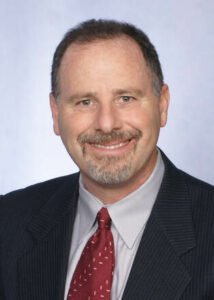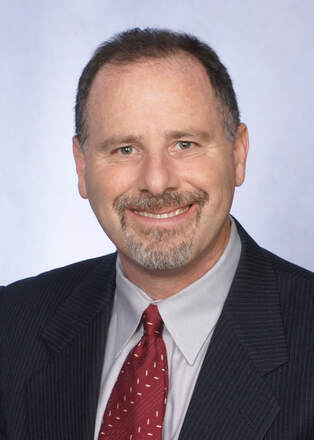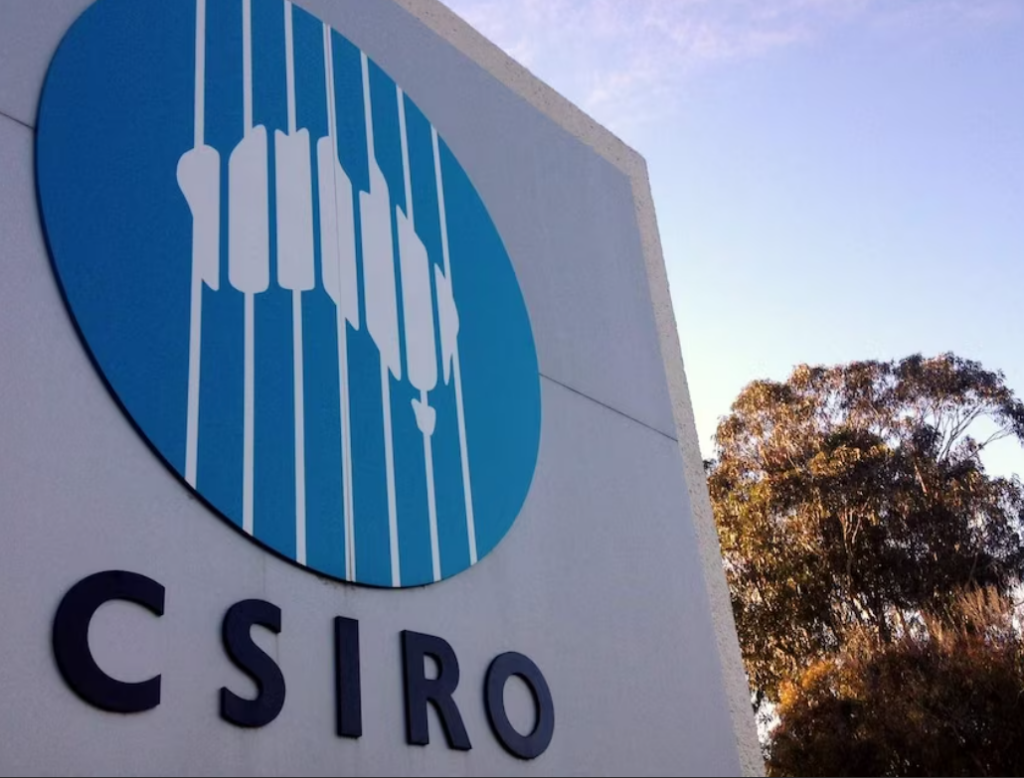Chicago Quantum Becomes a Registered Investment Adviser, and talks Quantum Ed
Quick Profile: Chicago Quantum is one of the world’s first quantum-focused consulting firms, a founding member of the Quantum Economic Development Consortium (QED-C) and has also become a registered investment adviser. They provide stock portfolio optimization based on a proprietary quantitative trading platform.

Todd: We’re speaking with Jeffrey Cohen of Chicago Quantum, and we’re just going to discuss some areas of quantum computing and consulting with quantum computing. So one thing I wanted to ask you: is there anything you’d like to share or celebrate that’s going on with Chicago Quantum?
Jeffrey: Yes, the big thing to celebrate is we are now a registered investment advisor in Illinois. That means we had to get federal approval, state approval, we had to meet financial net worth requirements, complete paperwork, pay licensing fees, and pass the Series 65 exam.
But now we are registered to provide investment advisory services to people and organizations. Afterwards, we may become a money manager or a broker dealer as our business grows.

So the message to the students out there is: if you love a type of business, like the equity markets, and you love quantum computing, there is a potential path forward for you.

Jeffrey: You can actually make money putting those lumps together. That’s the story. I did that earlier in my career with information technology, infrastructure and finance, and now I’m doing stock picking and quantum together.
Todd: Cool, what convinced you? What inspired you to start Chicago Quantum, originally as a business.
Jeffrey: Cloud computing was the wave of 2015 to 2018, so I had to look and see what the next wave was going to be. There was a probability that the wave would be quantum and that’s what prompted me starting the firm.
Todd: And your background includes working at big consultancies, so that’s a big step to go out on your own. Did you do market analysis? Or was it more of a gut feeling. How did you approach that question?
Jeffrey: It was a personal choice. Actually, I had been interviewing with another large consultancy. However, I did not take it because I’m newly married and I didn’t want to be on the road 50 weeks a year. So my family sees me most nights, and I am very happy with this personal choice.
Todd: Work-life balance sounds good. What kind of opportunities do you think there are for quantum consultants?
Jeffrey: Total addressable market for quantum consulting exceeds the ability to deliver the quantum consulting services now, and the market should continue to grow. It takes time and effort to learn and most firms would welcome experienced and skilled consultants.
So any firm with five or ten skilled quantum consultants would most likely maintain billable utilization in excess of their costs while creating well paying jobs.
We had sized our market in the Chicagoland area, inclusive of northern Indiana and southern Wisconsin, at 50 consultants maintaining client utilization in the commercial sector.
Todd: So how has it been going?
Jeffrey: In 2021, we made a profit. Our earned revenue exceeded our costs. I am very happy, and we are working hard to repeat this accomplishment in 2022. We notice other firms in the space without revenue, such as Quantum Computing Inc, which is publicly traded. We also understand that other firms may have been earning their revenue through grants and fundraising and the sale of equity. Larger firms with consulting practices in quantum computing can afford to invest in expertise in the area, and will tend to be the ‘first call’ for advice on quantum computing. I would assume that McKinsey & Company, Booz and Accenture are earning revenue from client engagements due to their firm size, reputation and client relationships. They are already serving clients, and quantum computing would be another topic.
Todd: In terms of talent required for that kind of business and to engage in quantum, do you believe that the talent force has to be someone who’s come through a PhD?
That’s the only kind you could hire, develop or do you think that there’s opportunities for, say, business people who are willing to learn some or all of quantum.
Jeffrey: Good question Todd. I do not want a business person or management consultant since I can fulfill that role. We are looking for PhD candidates and Masters degree candidates with expertise in specific domains. For example, we would be able to hire and deploy strong math, statistics, quantitative or qualitative data analytics expertise in the field of financial services. The more basic quantum computing consulting expertise around programming and testing code is relevant for clients in industries outside of financial services such as media and entertainment.
At this point, we don’t want to pay for sales leadership or project management, but for core expertise.
A master’s degree is just fine for someone who’s going to be hands-on coding and engaging in a client’s business challenges.
Todd: How does the discussion go with clients?
Jeffrey: When you meet with a client, they ask if we have the expertise to help them with a specific type of problem, or they want to know what we have developed and see if it can add value for them right away.
They want to drill down into our capabilities. For us, we work with our clients to understand their challenges as well to better understand if we are capable of helping them. We go back and forth between capabilities to deploy and challenges to be met. In a few cases, there is a deep dive into our financial optimization model and whether it is worth the price to deliver to the client.
We have one client that came to us with a really cool idea and their ask was whether we could code it on a specific quantum computer.
In short, we provide the expertise in math, coding or structuring the problem along with some domain areas where we are experienced. The client provides their own domain expertise. This makes a great fit, and the client sees significant business value which justifies our fees. We need both domain expertise and quantum computing expertise, although it can be in two people that work together on a client team.
Todd: One of the things a lot of people are looking at now, what I’ve seen is understandable in terms of workforce development: an emphasis on people who, in terms of building a quantum workforce, per say, an emphasis on building through all the way to fundamental science, where you’re actually designing algorithms.
And one of the things I’ve been looking at, asking myself, asking other people is: is there a difference between using algorithms and designing algorithms in terms of the experts required in relation to the question we just talked about?
So for someone who is interested in getting their business involved, the question of like is PhD level really necessary if you’re using an algorithmic library and something in Python that’s already created?
So basically the question would be: you know what do you think about the possibility building some of the quantum workforce where they’re using algorithms but not necessarily design them? Does that make sense to you or do you think that’s a stretch?
Jeffrey: So there’s a lot to that question. Let’s break it down in my answer.
The first: is there a way to use the quantum algorithms? One that does not require 20 years of schooling? The answer is absolutely yes. If I can use the algorithms, you can use the algorithms. You just have to be detailed, oriented, relatively good at coding, not even great, and understand enough of the math to know what it is to understand the question you’re answering.
Todd: Great!
Jeffrey: So that’s masters level, so I could probably fill a room with masters level python experts. And provide value to clients.
Todd: Right.
Jeffrey: On the other hand, if you want to develop something, quantum transduction, moving away from a quantum entangled wave to telecommunications wavelength, you need table tops full of very expensive equipment and highly specialized PhD level staff.
Todd: Is there a way to describe what the difference is between quantum computing and classical computing, in terms of stock trading?
Jeffrey: The scenario is, I want to pick stocks and we’re talking about a very large problem size. After we load, analyze and validate the data from our professional market data provider, Intrinio, we then have to ‘solve’ the problem computationally.
For a classical computer, the problem is so large that in my home it takes a Dell workstation anywhere from one to six hours to run the solvers, and it runs the server very hot, requiring an external fan.
We have an algorithm, the Chicago Quantum Net Score, that we can also use on D-Wave Systems’ quantum platform, and it gives a pretty good answer in just a few minutes. So quantum is faster, although the solution may not be as good.
Todd: Are there any trade-offs?
Jeffrey: You do give up some capability and significant scale of the problems. So far, clients have suggested they would rather have us run for up to six hours for the better answer. However, there are clients that find value in a ‘quantum’ answer because it is different. They see quantum computing, with its intrinsic randomness, as unique and differentiating.
Todd: So in your conversations with business leaders, have you found any way to explain how quantum, how or why quantum is good at something like supply chain optimization? Is there a way to explain it or understand it from a business person’s perspective that makes sense?
Jeffrey: So I’ve heard General Electric Research do a good job of explaining this, Annarita G. something
Todd: I can look it up.
Todd’s note: I found this, and GE’s 2019 experiments seem to affirm the optimization and supply chain use case.
“This mission sets out to answer the question: can we run a real-world industrial algorithm on an actual quantum computer? And from there, can we break through the hype and determine when and for what type of algorithms quantum will reign supreme over traditional computation?”
https://www.ge.com/research/project/quantum-computingThis also looks pretty interesting – “quantum computing applications in renewable energy”:
Quantum computing is a new field of computing that relies on the laws of quantum mechanics to perform types of information processing that are not possible on traditional (”classical”) computers. As a result, quantum computers are capable of using problem-solving approaches which are not available to classical computers. Thus far, most research in quantum computing has taken place in physics and theoretical computer science, leaving a disconnect between these researchers and practical problems/applications.
There is a need to identify good near-term problems to demonstrate quantum computing’s problem-solving potential. One possible area of contribution is in renewable energy. Adoption and scale-up of renewable resources in the next several decades will introduce many new challenges to the electrical grid due to the need to control many more distributed resources and to account for the variability of weather-dependent generation flows.
We identify a few places where quantum computing is most likely to contribute to renewable energy problems: in simulation, in scheduling and dispatch, and in reliability analyses. The problems have the common theme that there are potential future issues concerning scalability of current approaches that quantum computing may address. We then recommend potentially fruitful areas of crossover research to advance applications of quantum computing and renewable energy.
https://www.researchgate.net/publication/353528286_Quantum_Computing_Opportunities_in_Renewable_Energy
Jeffrey: To understand the capabilities, you can consider decisions in an industrial setting. If you have one line with five stations and five binary decisions to make (2^5) or 32 possible solutions. A person can do that in their head.
But the more variables you have about parts inventory, supply chain, time spent and many other areas, it can get incredibly complex to optimize for profit. As in, what is the optimal sequence to fix the engine and generate profit? And the larger the industrial operation, the more variables you end up with. So maybe I have 30 lines across ten job shops with 5000 stations, all with many individual variables and factors.
And quantum can potentially help solve for that kind of complexity, similarly to classical solvers, by finding a fast answer. It likely is not the best answer, but it may be better than managerial ‘pencil and paper’ and it can always be checked afterwards quickly for how good an answer it is.
Todd: So it has something to do with parallel questions and application through dependencies, that kind of language?
It reminds me of the language you are using in terms of stock picking, like you start to see the advantage when you’re talking about 3000 parallel questions of stock performance and then it sounds like a supply chain optimization.
Jeffrey: So if you and I are looking for something that is hard to find. You and I are both looking, but we are not talking until somebody finds it. We might miss something. However, now imagine that you, me, and every neighbor on the street and everyone with a video feed were in constant communication. The communication and coordination of search adds power. That is like entanglement between qubits, or sensors. That is the concept of multi-processing, or parallel processing that I am thinking about . It can help solve a large search space more efficiently.
Todd: Okay.
Jeffrey: Finding a ship in the ocean, finding an airplane in the sky, finding that one portfolio out of a billion quintillion portfolios to recommend to your client.
Todd: In terms of quantum ed, are there any external case studies or sources of information that you like to tell people to explore, to learn more about?
Jeffrey: So there’s books I’ve read. I am currently working through Chris Bernhardt’s book on quantum computing basics. It is helpful both to master the language between academics, but it is not providing me content to share with business clients. Other text books have been helpful for the academic setting as well.
I recently bought another round of quantum computing books. I would recommend books on applications of quantum computing or even classical computing applications for large-scale problems are helpful for those who wish to serve clients. Also what’s helpful is curiosity.
Todd: Good!
Jeffrey: So what would I recommend? If you’re a consultant or you’re a student, just google search quantum quantum computing, quantum information sciences. Then what’ll happen is you’ll start to find those nuggets of gold. And so I remember the first time I found Denso’s website: Denso is a Japanese automotive parts maker. They’re using it and then now, all of a sudden, you start to know what to look for, and so now you find the manufacturers. The supply chain, you talk about the users, the use cases, the researchers.
Jeffrey: Next thing you know, you’ve got 50 different use cases. It’s still one of my most popular articles on medium.
(LINK) https://chicagoquantum.medium.com/uncovering-the-business-value-of-quantum-technologies-9646638f0abc
Todd: Fair enough, is there anything else that you’d like to add to the interview?
Jeffrey: I think so. The first is we are founding members of the Quantum Economic Development Consortium and I want to recommend QED-C for any business that is either to be a significant user of quantum computing, or to be a significant supplier. It provides access to both sides of the value chain, and you can have a voice in helping set US Government policies around quantum computing, sensing, navigation, and the core hardware technologies across all uses. The access to related firms in the quantum space is priceless.
(QED-C link)
https://quantumconsortium.org/
You also start to meet people. People are switching jobs because there’s not a lot of money yet being earned. And so you can build relationships and potentially hire great talent. You can meet talent and discuss opportunities. We were going for a Department of Energy grant and I reached out to a CEO I met at a meeting. We had a good conversation and it led to constructive dialog.
Todd: And is QED-C domestic only, or is it also international?
Jeffrey: Well, it’s international as well for U.S. allies, So you’ll see South Korea, you’ll see Japan, you’ll see Australia, you’ll see Canada and I believe you’ll also see a good portion of Western Europe in there. There are certain groups and work that are for US citizens only, I would expect.
Todd: Ok.
Jeffrey: So that’s one. The other suggestion I will make is to talk to people in the field. If you’re interested in the field, if you’re a student, if you’re a consultant, pick up the phone, call me, call anyone like me. I did it, I met a whole bunch of companies. I went to a couple of conferences.
I begged poverty in the beginning, didn’t even have to pay for the conferences. So I went in and I met, for example, the CEO of Honeywell’s Quantum business. We sat on a couch and we talked business. He’s spending a $100 million dollars a year on Quantum. We were spending maybe $1,000 a year on quantum. Well, you rarely get those opportunities in a more established field. I love talking to people and learning about them. If you were a student that cared about financial services in quantum, you call me. I might be able to give you a project. So now, on the other side, if you’re a client or a potential client or an academic, you can call us as well to discuss ideas and potentially paid engagements.
Todd: So I found another question. If a government or industry coalition wanted to support independent quantum consultancies, like, if they wanted to help foster that ecosystem, and if there is the assumption that talent is scarce with demands and the exports increasing, do you have any viewpoint on how best to transfer knowledge in scale from experts?
Is what you see out there the right thing to do?
Is there anything you think that you know they should be doing, or really emphasizing the US or elsewhere? Do you have any viewpoint on how to build up a bigger quantum workforce?
Jeffrey: I think it’s an apprenticeship model. So whatever, wherever, whenever you need an industry to grow, whether it’s plumbers, electricians or quantum experts, it’s apprenticeship. We see that in the national labs and also in industry. In fact, we would hire an apprentice because it is low-cost labor and could lead to a long-term employee.
Todd: Talking about apprenticeships, the question is: how much do you think you can prepare a quantum workforce in the classroom versus the real world? Should a government or industry coalition under right internships? And I think that’s what you’re talking about: not an internship but an actual apprenticeship.
Jeffrey: An internship or an actual employment as an apprentice is where staff are paid. Our governments can help by funding those positions in cases where we cannot afford to pay staff, such as when researching a new topic in a start-up. In our case, we are a bootstrap firm without access to external capital.
Todd: So if we assume that quantum may follow a similar path to AI/ML implementation, then maybe something like DataRobot, Databricks type platforms will extend to quantum or new ones will arrive. Do you think that these assistive platforms for quantum will allow people to use algorithms versus design? Do you think that assistive platforms could open up the gates for a wider talent pool?
Jeffrey: I believe in assisted platforms. Anything to save time from setting up python environments, coding solvers, and managing data flows would be great. However, these tools and technologies usually come with a price in terms of licenses and loss of degrees of freedom in how to work.
In our case, we coded the ‘assisted platform’ ourselves for our own usage. We maintain multiple types of solvers and a rich data access method to a professional data provider. This is work we do for ourselves and our clients, and it can be expensive. It would be expensive for us to maintain that for third-parties, but we will maintain that for our client engagements.
The assisted technologies help firms that want to avoid that effort and cost.
The next layer up, designing and building algorithms and programs is a source of competitive advantage. It’s required when you can’t solve the business problem any other way. Most people use somebody else’s algorithms, use someone else’s assisted platform. The one percent that write their own python code and pull it all together add tremendous value for clients. I recommend clients and consultants to write their own python code and pull things together.
Bringing it back to workforce development, I suggest that new entrants should be trained to solve a problem using available toolsets. That being said, Chicago Quantum started by building an algorithm, a platform, a set of solvers and eventually integrating with a professional market data provider.
About Chicago Quantum
Chicago Quantum supports strategic & development quantum computing & quantitative data analysis projects, and provides IT-focused strategy, consulting and expert services. Chicago Quantum is one of the world’s first quantum-focused consulting firms, a founding member of the Quantum Economic Development Consortium (QED-C) and has also become a registered investment adviser.
If you found this article to be informative, you can explore more current quantum news here, exclusives, interviews, and podcasts.




















